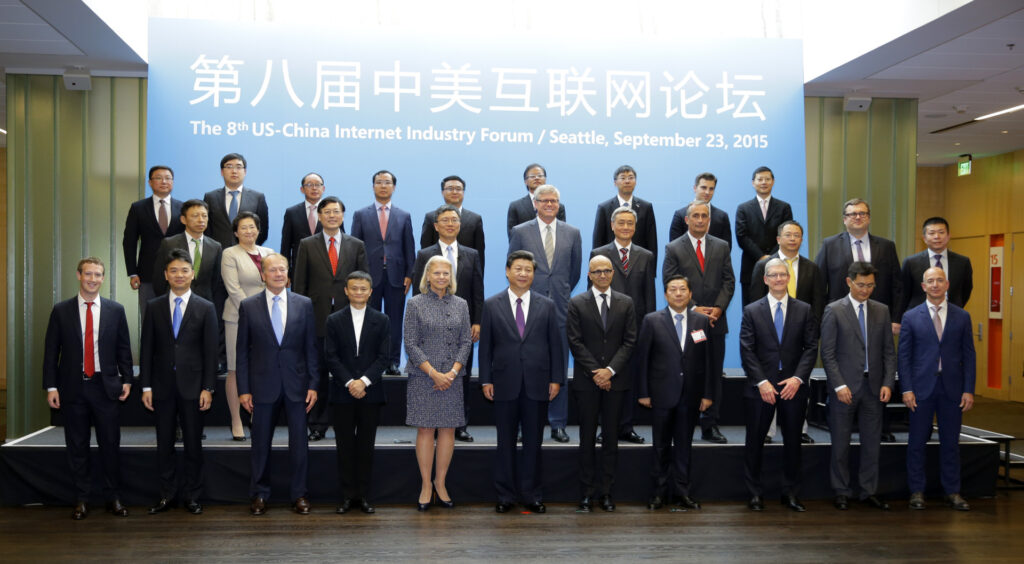Jack Ma, the once-flamboyant billionaire founder of tech giant Alibaba, re-appeared in China last week after spending over a year in exile.
Ma’s prestige in China was erased, along with much of his fortune, after he dared to criticize the Chinese Communist Party at a conference in Shanghai in October 2020.
Ma disappeared completely for about three months after the Shanghai event, during which time he was scrubbed from various events and websites, including a TV show he used to host. When Ma reappeared, the ebullient billionaire was very noticeably subdued.
Meanwhile, Alibaba was subjected to an antitrust probe by the Chinese government, while Ma’s titanic financial company the Ant Group was fined over a billion dollars. Many other Chinese tech companies felt the sting of an industry-wide crackdown that wiped out billions of dollars in value.
After a year of keeping a very low profile, Ma resurfaced in Japan last December, having reportedly moved there with his family in the spring of 2022. Friends said he was quietly pursuing hobbies like art collecting and watercolor painting.
The BBC reported on Monday that Ma has finally returned to China, stopping briefly in Hong Kong to visit with friends and attend an art fair before continuing to Hangzhou, the location of Alibaba’s headquarters.

Chinese President Xi Jinping, front-row-center, poses for a photo with a group of CEOs and other executives at Microsoft’s main campus in Redmond, WA, Wednesday, Sept. 23, 2015. Front row, from left: Facebook’s Mark Zuckerberg, JD.com’s Liu Qiangdong, Cisco’s John Chambers, Alibaba’s Jack Ma, IBM’s Ginni Rometty, Chinese President Xi Jinping, Microsoft’s Satya Nadella, China’s Internet czar Lu Wei, Apple’s Tim Cook, Tencent’s Pony Ma, and Amazon’s Jeff Bezos. Middle row, from left: Sohu’s Zhang Chaoyang, AMD’s Lisa Su, Lenovo’s Yang Yuanqing, Microsoft’s Harry Shum, Qualcomm’s Steve Mollenkopf, CETC’s Ziong Qunli, Intel’s Brian Krzanich, Qihoo 360’s Zhou Hongyi, LinkedIn’s Reid Hoffman, and SINA’s Cao Guowei. Back row, from left: Sugon’s Li Jun, Didi-Kuaidi’s Cheng Wei, Broadband Capital’s Tian Suning, CEC’s Liu Liehong, Baidu’s Zhang Yaqin, AME Cloud Ventures’ Jerry Yang, Inspur’s Sun Pishu, AirBnB’s Brian Chesky, and Sequoia Capital’s Shen Nanpeng. (AP Photo/Ted S. Warren, Pool)
Ma, who was formerly a schoolteacher, visited a private school in Hangzhou and talked about technology and education, particularly the changes that will be brought about by increasingly powerful artificial intelligence (AI) systems like ChatGPT. He also reportedly said he would like to return to teaching someday.
According to the South China Morning Post (SCMP), which is owned by Alibaba, Ma claimed he had been traveling abroad to learn about agriculture, but did not discuss his disappearance and long period of silence after criticizing the Chinese government.
The SCMP noted that Ma’s “whereabouts are closely watched,” so his travel schedule was probably crafted to send a message.
Reuters on Monday quoted rumors that Ma returned to China at the invitation of Premier Li Qiang, who thought Ma’s return to Chinese public life could “help boost business confidence among entrepreneurs.”
In other words, Li hoped Ma could help soothe jitters among both Chinese executives and foreign investors, who have been on edge from the tech industry crackdown and the aftermath of the coronavirus pandemic.
The Wall Street Journal (WSJ) noted that newly-installed Premier Li “devoted a large portion of his first news conference earlier this month to reassuring entrepreneurs of Beijing’s support for the private sector.”
According to several sources, Li reached out to Ma’s associates in Japan to persuade him to visit China, as a means of signaling that the crackdowns are over and “restrictive policies” on tech companies may soon be loosened. Some observers were skeptical that merely bringing Ma back from exile would be enough to convince entrepreneurs that authoritarian China was safe for business again.
“I can see how this sort of signals a relaxation but none of the laws and institutions set up to control the private sector have changed,” analyst Fraser Howie told Reuters.
“It doesn’t matter at all to private business because he is already beaten. The state won, Jack has lost control, power, wealth and it’s not coming back,” Howie said.
Senior lecturer Xin Sun of King’s College London told CNBC he suspected “some sort of deal” was struck between Ma and the regime in Beijing to facilitate his public return to China.
“In so doing, the government intends to signal its warmth towards private sector and investors – if even Jack Ma is perceived as having been pardoned, everyone else should feel safe and welcome,” Sun said.





Comments are closed.